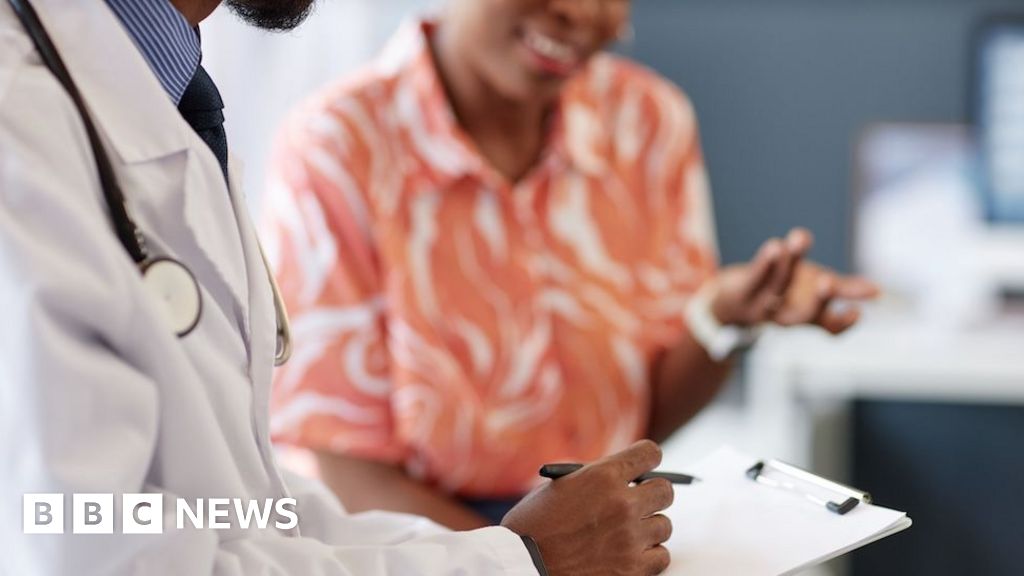ARTICLE AD BOX
By Michelle Roberts
Health editor, BBC News online
Image source, Getty Images
Unlike last year, large Christmas gatherings down the pub are not banned.
Many people are now vaccinated, but is an office party or after-work drinks really worth the risk right now?
UK Covid cases are high and still rising and there's a new highly mutated and easy to catch variant called Omicron circulating that could well change the balance of risks.
Some companies already have cold feet and haven't booked anything formal, or have cancelled plans.
But the PM Boris Johnson has says there is no need for this. Large groups can still party at bars, nightclubs or karaoke venues.
Just how risky?
A big factor to consider, alongside how many of the people you plan to mingle with are jabbed (we'll get to that in a bit), is how enclosed and poorly ventilated the venue is.
Drinking outside the pub - in your big coat rather than beer jacket at this time of year - is much less risky than socialising at the bar.
Fresh air can disperse the virus, which helps prevent aerosol transmission - when someone catches Covid from tiny droplets breathed or sneezed out by another person nearby.
Infectious droplets can hover in the air for hours in a stuffy room.
Popping on a face covering and keeping 2m apart may help cut transmission, but not partying.
How can you have a good gossip about Rita in Accounts or network your next promotion unless you get in there and mix?
Shouting and singing - to be heard above or harmonise with loud music - can produce 20-times the mass of aerosol to spray on to unsuspecting colleagues than speaking at a normal level of loudness.
Getting coughed on is another contagion risk, along with touching contaminated surfaces.
Sharing bowls of bar nuts and passing round a cocktail for colleagues to taste would be a bad idea.
Drinking lots of alcohol may add to the party spirit, but in terms of Covid, it's risky because it lowers our inhibitions.
Aside from a regrettable drunken kiss or a cuddle with a colleague, getting tipsy makes you more likely to interact with people you don't know.
US researchers have shown people get physically closer to strangers after a few drinks.
This might help Covid spread between previously unconnected social groups, says the Harvard University team who plied volunteers with either alcoholic or soft beverages and observed them via a video link.
Christmas mixing effect
US data also shows how having just one infected person at a crowded gathering is a risk. Superspreader events - where lots of the attendees catch it - have happened.
In March 2020, a member of a choir caused 32 confirmed infections and 20 probable ones during a practice singing session in Skagit County, Washington.
There wasn't much old-school partying going on in the UK last Christmas, due to Covid restrictions.
In the first few days of 2021, when you might expect to record the impact of Christmas mixing, new Covid cases were rising.
But this upward trend followed a similar pace to pre-Christmas. There was also a new, more infectious variant called Alpha circulating at the time, making it difficult to draw conclusions.
But these examples are before Covid vaccines were widely available.
We'll need to look at more recent events, given lots of people are now double or even triple jabbed and there's the new Omicron variant to consider.
More than 80,000 fans attended the game at Twickenham the weekend before last on 20 November - some filling the pubs nearby.
They are being urged to come forward for testing if they have Covid symptoms.
It is too soon to know how many may have caught Covid and whether they will be Delta or Omicron.
Vaccinated but not invincible
Even with lots of jabs in arms, latest data suggests around one in 65 people in the UK has Covid, with many unaware because they have no symptoms.
Some will be unvaccinated children, but some are vaccinated adults.
If you've recently had a booster shot or recovered from a Covid infection in the last few weeks there's a good chance you will be virus-free and non-contagious.
But the only way to be sure is to do a test. The government recommends people do a lateral flow before visiting crowded places, even if they are fully jabbed.
Vaccines lower the chance of catching and spreading it too, but the risk is not zero. And immunity wanes, which, along with the arrival of Omicron, is why boosters are being offered and fast-tracked.
All adults in the UK are now being offered boosters and the NHS says people will be called in priority order, starting with the oldest and most vulnerable.
Although our current vaccines are not an ideal match for Omicron, so may not work quite as well, experts are hopeful the shots will still help prevent serious illness and save many lives this winter.

 3 years ago
76
3 years ago
76








 English (US) ·
English (US) ·